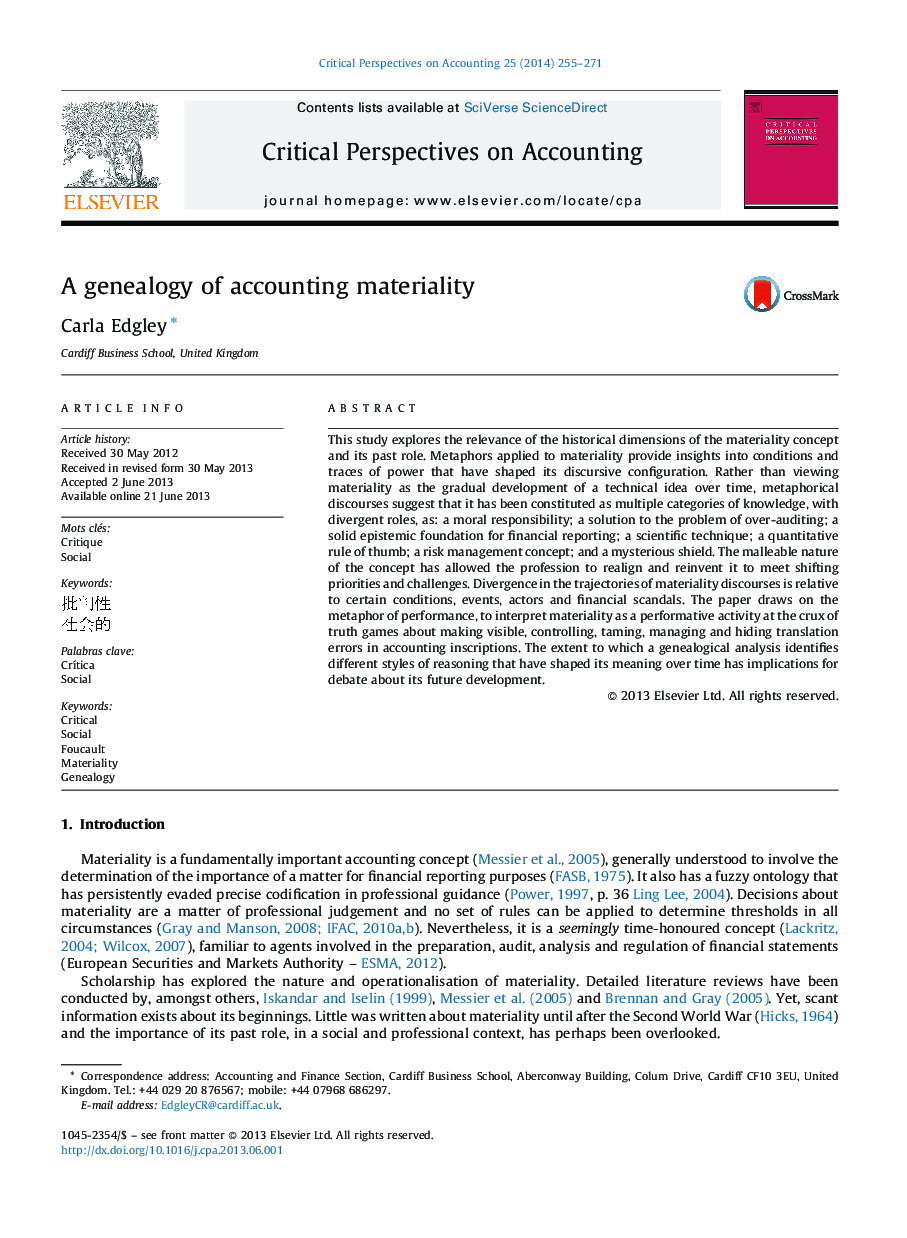| Article ID | Journal | Published Year | Pages | File Type |
|---|---|---|---|---|
| 1000806 | Critical Perspectives on Accounting | 2014 | 17 Pages |
•Considers the obscure beginnings of accounting materiality and unravels the historical ontology of this familiar concept.•Draws on Foucault, focussing on imagery, to unearth clues about factors that have shaped its existence.•Examines expertises that have constructed materiality as different knowledge objects and the trajectories of discourses.•Considers materiality as a performative activity in the materialisation of accounting inscriptions.•The implications of shifting configurations of materiality are considered.
This study explores the relevance of the historical dimensions of the materiality concept and its past role. Metaphors applied to materiality provide insights into conditions and traces of power that have shaped its discursive configuration. Rather than viewing materiality as the gradual development of a technical idea over time, metaphorical discourses suggest that it has been constituted as multiple categories of knowledge, with divergent roles, as: a moral responsibility; a solution to the problem of over-auditing; a solid epistemic foundation for financial reporting; a scientific technique; a quantitative rule of thumb; a risk management concept; and a mysterious shield. The malleable nature of the concept has allowed the profession to realign and reinvent it to meet shifting priorities and challenges. Divergence in the trajectories of materiality discourses is relative to certain conditions, events, actors and financial scandals. The paper draws on the metaphor of performance, to interpret materiality as a performative activity at the crux of truth games about making visible, controlling, taming, managing and hiding translation errors in accounting inscriptions. The extent to which a genealogical analysis identifies different styles of reasoning that have shaped its meaning over time has implications for debate about its future development.
